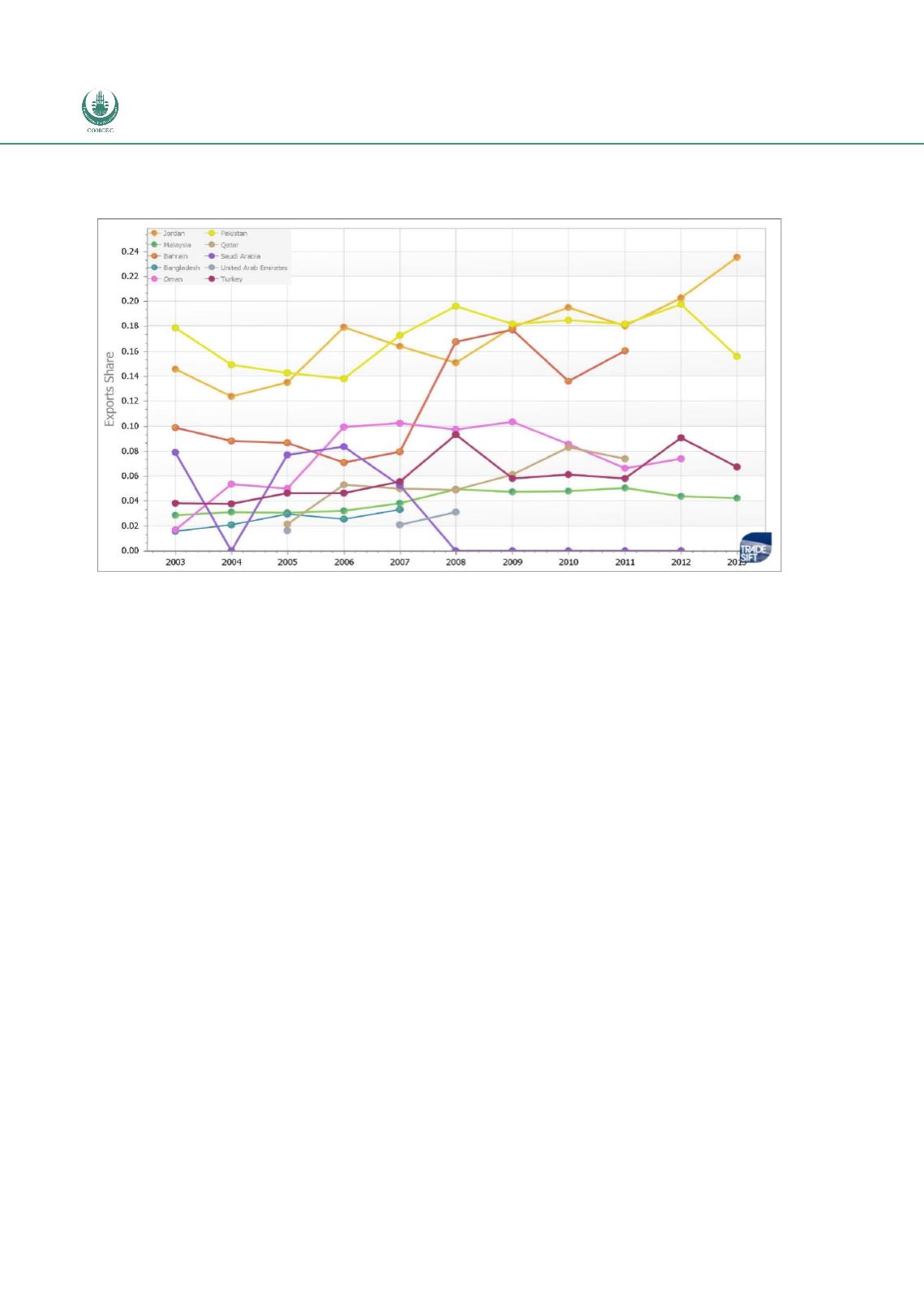

Preferential Trade Agreements and Trade Liberalization Efforts in the OIC Member States
With Special Emphasis on the TPS-OIC
160
Figure 72: TPS Countries: % Share of Intra bloc Exports
Source: UN Comtrade via WITS
The same analysis can be performed by looking into the imports of each of the Parties of TPS-OIC
System from the rest of the members, as in Figure 73. From this it can be seen that for some
members, the share of imports from the other Parties of TPS-OIC System is quite high. The share of
imports for Oman, Pakistan and Jordan from the other Parties of the TPS-OIC System is well above
25% and Saudi Arabian imports from the TPS-OIC are around 19% of total imports. As we have seen
in section 5.2.2, Pakistan, Oman and Jordan present the highest shares of intra-OIC imports. In
contrast, for Turkey and Malaysia, the share of the TPS-OIC in their imports is lower, accounting for
only 5% of
total imports. In these cases, this is likely to be driven by the respective importance of the
EU and ASEAN in the imports of these two countries.
A first reading of these results might lead to the conclusion that the Parties of TPS-OIC System tend to
be important suppliers of imports but that the TPS-OIC group is less important as a destination
market, which might suggest some scope for an expansion of trade. However, it is important to
highlight two issues. In the case of the GCC members they are already part of an FTA, indicating that
the trade between them is already high. In addition, they tend to share borders, which is likely to
increase the imports from the neighboring countries. For example, Oman imports from Saudi Arabia
and the UAE will be higher as a result of sharing borders with both countries. This implies that their
bilateral trade is likely to be affected by the shared borders and by the existence of an FTA.
In the case of Pakistan, it is likely that a substantial proportion of the imports from the UAE are in
fact imports from India that are channeled through the UAE, as a result of the closure of the border
between both countries and/or exports that are circumventing the Pakistan negative lists in the

















